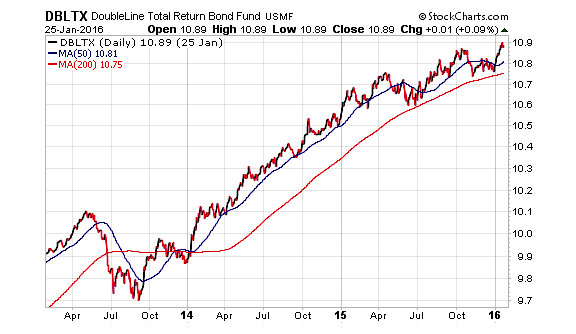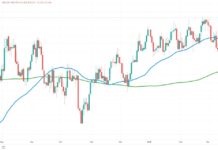Ever notice how pessimistic bond fund managers are? They are some of the most “glass half empty” people you will ever come into contact with. Even the ones who have successfully built legacies that will endure for generations are consistently talking down on the economy, central banks, growth, and other unfavorable economic data points.
Jeffrey Gundlach, one of the more revered bond fund managers, recently hypothesized that emerging markets could fall as much as 40%. He has also been an outspoken critic of the Federal Reserve’s rate hike agenda and the lack of inflation in the developed world. Jeffrey Gundlach is the head of DoubleLine Capital, which manages $85 billion in fixed-income assets.
Similarly, renowned bond fund manager and investor Bill Gross railed about the problems with government debt and social service liabilities in his 2016 investment outlook. He seems very concerned about demographic trends and workforce shortages. Bill Gross was one of the biggest bond fund managers (and ran one of the biggest bond funds) in the world at PIMCO prior to his separation from the firm he founded and transition to Janus Capital Group.
These are just two of the most vocal and well-known bond fund managers in the world, but there are countless others that are quick to point out the cracks in the global economic picture for 2016.
Talking Your Book
In the business we call this “talking your book” or simply slanting the facts and opinions towards a conclusion that favors your trade. Volatility, uncertainty, and fear are a bond fund managers dream come true. They have built empires on the back of investors fleeing the stock market in a rush to safety (i.e. bonds).
Stocks usually drop in tandem with interest rates, which means that bond prices rise in kind. This favors their performance story and leads to a wave of new assets that quickly enter and are slow to leave. The returns are steady, the volatility is low, and the fees are reasonable – why would you ever want to depart that warm cocoon?
These bond fund titans are simply saying “take my hand and I’ll guide you around all the pitfalls and uncertainty”. Bless their hearts.
Active managers in particular are able to shape the underlying holdings of their funds in accordance with their views. They have certain limits and mandates according to the prospectus guidelines. However, there is always some leeway to reduce exposure to areas they are concerned about, add to undervalued opportunities, or build in hedges as appropriate. This can lead to a measurable boost in performance over the benchmark if they are on the right side of the market.
The best bond fund managers have risen to their status because they are right more often than they are wrong. My review of Jeffrey Gundlach’s predictions for 2015 were pretty spot on with the exception of his call on gold. I have been a long-time fan of his flagship strategy in the Doubleline Total Return Bond Fund (DBLTX) and continue to hold it in my own account as well as for my clients.
The rigors of managing billions in bonds is a stress that I will likely never have to endure. As a result, I have a more even-keeled outlook for the future that balances the dangers of a bear market or recession against the opportunity for a resurgence in risk assets. This allows for a more flexible (if guarded) approach that has served me well in riding out the ups and downs of this fickle market.
The Bottom Line
Understanding the motivations of an investment manager can be useful in deciphering their market calls and help frame their message in the context of your personal outlook. In addition, it’s always advantageous to dig a little deeper to see how their actual portfolio is positioned versus what they are saying publicly. If there is a disconnect between these two points, it may be best to error on the side of their actions versus their words.
Remember that everyone has a motivation or bias in the investment world (even me). By understanding this perspective, you can more acutely discern brains from bullshit and act accordingly.
Twitter: @fabiancapital
Gather more insights from David’s investment blog.
Any opinions expressed herein are solely those of the author, and do not in any way represent the views or opinions of any other person or entity.









